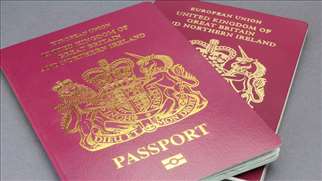Become a British citizen
ifir web
February 10, 2018
Home, Information on Refugee Issues, Refugee Issues
1,107 Views
-
Check if you can apply
-
-
-
-
-
-
1. Check if you can apply
There are different ways to become a British citizen. The most common is called ‘naturalisation’.
You can apply for British citizenship by naturalisation if:
-
you’re 18 or over
-
you’re of good character, for example, you don’t have a serious or recent criminal record, and you haven’t tried to deceive the Home Office or been involved in immigration offences in the last 10 years
-
you’ll continue to live in the UK
-
-
And you must usually have:
-
lived in the UK for at least the 5 years before the date of your application
-
spent no more than 450 days outside the UK during those 5 years
-
spent no more than 90 days outside the UK in the last 12 months
-
-
had permanent residence status for the last 12 months if you’re a citizen of an EEA country – you need to provide a permanent residence document
-
not broken any immigration laws while in the UK
You can’t include any time spent in the UK when you’re exempt from immigration control (for example, as a diplomat or member of visiting armed forces) as part of the 5 years.
Children under 18
You can apply on behalf of a child under 18 if they meet the eligibility criteria. They don’t have to pass the Life in the UK Test.
Read more about citizenship for children under 18 in Guide MN1.
Fees
2. If your spouse is a British citizen
If you’re married to, or the civil partner of, a British citizen, you can apply for citizenship if:
-
you’re 18 or over
-
you’re of sound mind, you’re able to think and make decisions for yourself
-
you’re of good character, for example you don’t have a serious or recent criminal record
-
-
you’ve been granted indefinite leave to stay in the UK (this means there’s no specific date that you have to leave) or permanent residence if you’re an EEA national (and you have a permanent residence card or document that shows you have permanent residence)
-
Unless your spouse or civil partner works abroad either for the UK government or for an organisation closely linked to government, you must usually also have:
-
lived in the UK for at least the 3 years before your application is received
-
spent no more than 270 days outside the UK in those 3 years
-
spent no more than 90 days outside the UK in the last 12 months
-
not broken any immigration laws while in the UK
3. How to apply
There are 3 ways to apply for British citizenship by naturalisation:
-
make an individual application
-
use the Nationality Checking Service (NCS)
-
use an agent or representative
Make an individual application
Read the guidance notes and the requirements booklet, which tell you how to fill in the form and what other documents you need to provide.
Apply using the NCS
The NCS is run by local councils and they can help you make your application. Check if your local council has an NCS.
Apply through an agent or representative
An agent or representative is a private company or individual that can help you with your application and give you advice.
You can also use some solicitors or barristers that aren’t registered with the OISC. These include:
-
General Council of the Bar
-
Law Society of England and Wales
-
Chartered Institute of Legal Executives
-
Faculty of Advocates
-
Law Society of Scotland
-
General Council of the Bar of Northern Ireland
-
Law Society of Northern Ireland
Fees
Biometric information
You must also provide your biometric information (fingerprints and a photo). This costs £19.20.
The Home Office will tell you when you need to provide your biometric information. Your biometric information is only held until you’ve attended a citizenship ceremony.
4. Where to send your application
Send your application form, fee and any supporting documents to:
UKVI
Department 1
The Capital
New Hall Place
Liverpool
L3 9PP
Channel Islands or the Isle of Man
Send your application to the Lieutenant Governor.
British overseas territories
Send your application to the Governor of the territory.
All other countries
Send your application to UK Visas and Immigration:
Department 1
UK Visas and Immigration
PO BOX 306
Liverpool
L2 0QN
Fees
5. After you’ve applied
You’ll get a letter confirming your application. It can take up to 4 weeks for you to get the confirmation.
A decision about your application will usually be made within 6 months – some applications can take longer.
You’ll be told if you need to give more information to help with your application. You should also contact UK Visas and Immigration if your situation changes (eg, you move house, get married or are arrested) during your application.
You might be asked to attend an interview where you’ll need to speak without an interpreter.
6. Citizenship ceremonies
You’ll be invited to book a place at a citizenship ceremony if your application is successful and you’re over 18.
You’re usually allowed to take 2 guests. You must take your invitation when you go to your ceremony.
There’s a ceremony fee of £80.
Ceremonies in the UK
Your ceremony will usually take place close to where you live.
Citizenship ceremonies are organised by your local council and are usually done in groups. Book your citizenship ceremony with your council. You can ask for a private ceremony.
Request a ceremony outside the UK
If you’re not living in the UK, you can ask to have your ceremony at the embassy or consulate in the country you’re living in.
If you’re only abroad for a few months, you might be asked to postpone the ceremony until you return to the UK.
If you’re planning to be away for longer, you might have to prove you’re planning to live in the UK permanently.
During the ceremony
You’ll have to make an oath of allegiance (or you can make an affirmation if you prefer not to swear by God) and a pledge. This means you’ll promise to respect the rights, freedoms and laws of the UK.
At the end of the ceremony you’ll be presented with your certificate of British citizenship and a welcome pack.
Some local councils sell photographs or videos of the event.
When you don’t need to attend a ceremony
You’ll need to make an oath or affirmation of allegiance but you won’t need to attend a citizenship ceremony if you’re registering to become a:
7. After your citizenship ceremony
Once you’ve got your certificate of British citizenship, send your biometric residence permit back to the Home Office.
You must send your permit back within 5 working days of either:
-
going to your citizenship ceremony
-
getting your certificate of British citizenship
Cut your biometric residence permit (BRP) into 4 pieces and put it in a windowless envelope. Include a note saying you’re returning your permit because you’ve become a citizen. The note needs to include your name, date of birth and the document number (located on the front of the card).
Naturalisation BRP Returns
PO Box 195
Bristol
BS20 1BT
You’ll be fined up to £1,000 if you don’t return your permit within 5 working days.
Travelling to and from the UK
You can’t enter the UK using your BRP or certificate of British citizenship.
For more information please see the link of the Home office UK government web page below:
 IFIR-Eng The International Federation of Iraqi Refugees
IFIR-Eng The International Federation of Iraqi Refugees


